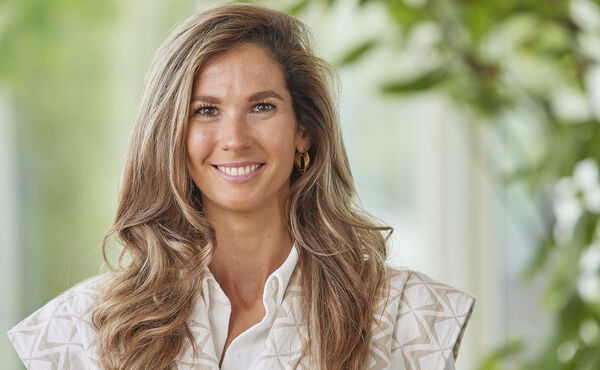In the past five years, I worked as a PR Advisor and, by telling stories for many different lifestyle brands to the masses through the media, I became a true storyteller. For centuries, people have connected through storytelling, and this has always interested me. Today, we tell stories in Zoom meetings at work and to our children before they sleep and BC (before Covid) it was during jovial dinner parties.
But how is it that some people can captivate an audience with their tales, whilst others can’t hold the attention of the listener? Not just telling stories, but telling stories well can help you connect to the people in your life and, as we’re in a period of time where we perhaps feel a little less connected to those we love, this storytelling guide could help reignite those special bonds.
But first: what is storytelling?
Do you recognise this? Your manager tells you about the new strategy, but when they finish you have no idea what they just said. Or: a friend shares their experience of a Happn date during a Zoom, but your thoughts quickly wander. How can it be that you want to listen, but you find yourself zoning out? Simple: the story doesn't do anything for you emotionally. A good storyteller touches you with concrete, meaningful and recognisable stories and creates involvement. They use characters in the story that you can empathise with, or with whom you feel connected.
The word 'telling' in storytelling is actually too limited; it is also about listening, shaping, learning and sharing. Only when the storyteller tells a story in the right way can they engage with their audience and mobilise everyone. Being a master in storytelling is therefore not only useful for strengthening the bond with your friends, but it is also beneficial for companies too. When telling a story that subtly appeals to the dreams and desires of your target group, without explicitly mentioning ‘buy this’ or ‘do that’ you can encourage people to do what you want.
So, what are the secrets of effective storytelling?
I spoke with Mieke Bouma, author, teacher and owner of the Storytelling Academy and Maaike Kemmink, Content Manager at the Storytelling Centre, to discover the tips & tricks you need to become a compelling storyteller.
Anouk: As a professional storyteller; can you describe what effective storytelling is?
Mieke: Storytelling is more than the literal translation 'telling stories', it is rather a collective term for finding, shaping and telling stories in very different contexts. With the aim of connecting, giving meaning, profiling and self-examination. Storytelling takes place within education, healthcare, marketing, communication, business and personal development.
Anouk: Does body language play an important role in telling a good story? And why?
Maaike: Yes, it does. Especially when speaking in front of an audience. Nowadays, of course, you can listen to a podcast and you can read a good story. But something extra happens when narrator and listener are in the same room. There is interaction then; people can react to each other and emotions are visible through body language.
Anouk: What are the 3 main ingredients of telling a compelling story?
Mieke: To me, the most important things when it comes to storytelling are:
- Make sure your story always has a beginning, a middle and an end. And a turning point somewhere, where everything changes.
- Capture the imagination, use images, emotions, characters.
- Keep it exciting. Surprise your listeners and create unexpected plot twists.
Anouk: Are there any absolute don'ts when it comes to storytelling?
Maaike: Not wanting to be vulnerable. As long as you don't do this - you don't share anything personal, you won't connect with your audience. And your story should not only be about you. Every good story has several layers: a personal, an emotional and a universal layer. Together, these ensure that the story touches you but that it also conveys a message.

Anouk: Is there a difference between ‘business’ storytelling and storytelling for friends & family?
Mieke: This depends entirely on your goal. Do you want to connect? Explain something? Do you want to enthuse people? Do you want to inspire? Or is it about the fact that you have a beautiful story? I always distinguish between intrinsic storytelling (just telling a story because it's a good story) and purpose storytelling: telling a story with an external purpose, such as explaining something and getting people moving.
Anouk: What is the best way to interact with your audience?
Maaike: There are handy and clever exercises for this, all of which are also included in Storytelling Centre's Share to Connect method. This method consists of a practical explanation of various techniques and ways of applying storytelling. An example of an exercise is the name game. This exercise uses three questions:
- How did you get your name?
- Are you happy with your name?
- If you know it, what is the deeper meaning of your name?
Anouk: How can you grab (and maintain!) the attention of your audience?
Mieke: Start surprising, dare to be personal and vulnerable, be specific, describe images. And last but not least: involve your audience!
Anouk: What is your personal favorite life hack for telling a compelling story? And why?
Maaike: That would be the structure of a story. In a good story (think of the classic The Lion King, or the more recent film Vaiana), there is a hero who goes on a journey. On his or her journey he or she meets a villain, but there are also helpers. At the end of the journey, the hero is rewarded. He or she is changed by the journey and has gained wisdom and spiritual power. This is a perfect life hack for me because it is so universal, recognisable and easy to apply.
Mieke: Choose stories that touch or intrigue you. Investigate the symbolism and meanings the story holds.
Anouk: How can we practice storytelling while we all work from home?
Mieke: Pick a memory from your childhood, describe it in detail and visualise it. Share what the memory does to you and end with: why am I telling this... (then share your insights or the meaning this story has for you)
Anouk: Do well-told stories have anything in common?
Mieke: When you take a close look, all stories are very much alike. Old myths, adventure stories, fairy tales and personal stories always deal with the same phenomenon. There is a protagonist who is called upon to leave his safe haven, to go on an adventure, to overcome a great fear, to return in the end richer and wiser and to enrich the world with the treasures and insights he has gained. That is how your life is as well. You are constantly challenged to broaden your horizons, to tap into something new in yourself, and so you can offer the world something of value.



.jpg?sw=600&sh=370&sm=fit&cx=0&cy=0&cw=600&ch=370&sfrm=jpg)
.jpg?sw=600&sh=370&sm=fit&cx=0&cy=0&cw=600&ch=370&sfrm=jpg)




